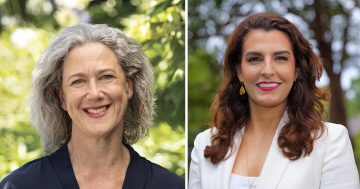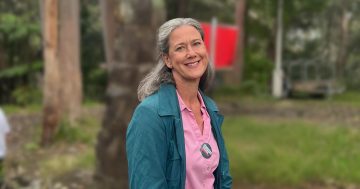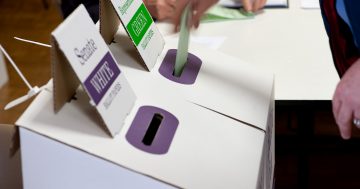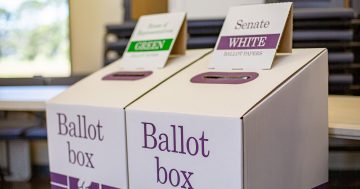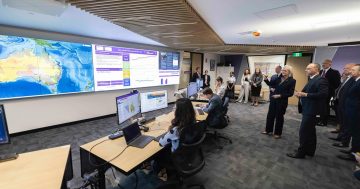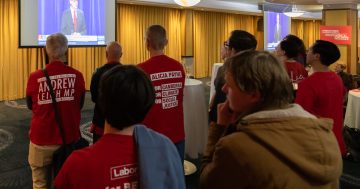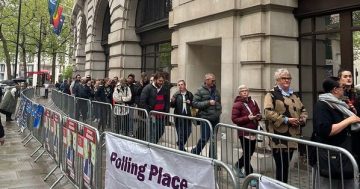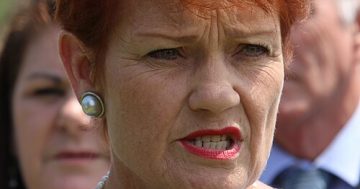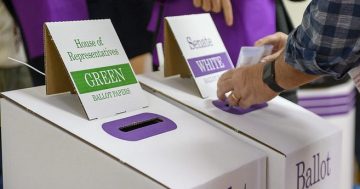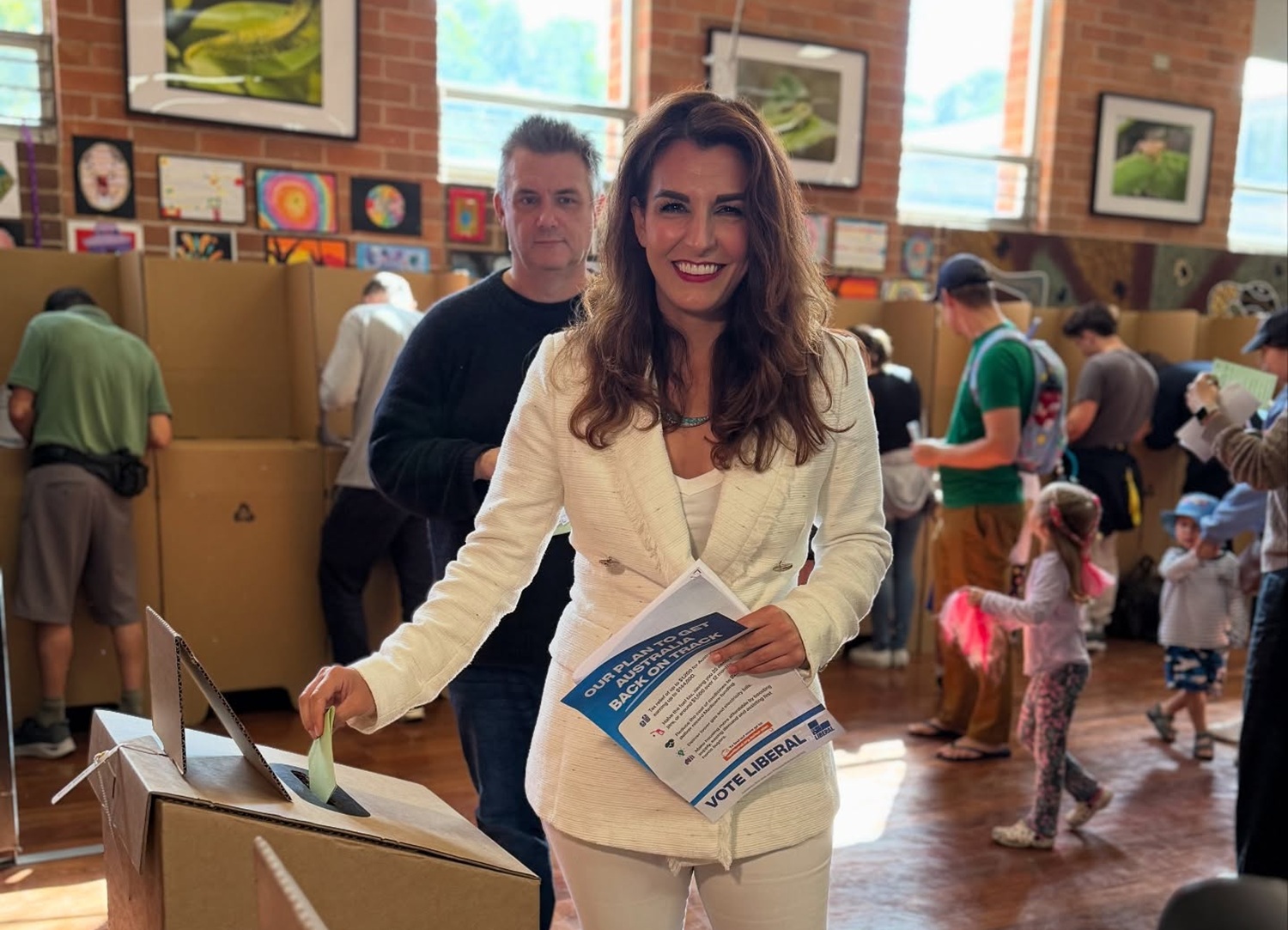
The Liberal Party has launched an appeal against Giselle Kapterian’s narrow loss in the seat of Bradfield. Photo: Giselle Kapterian Facebook.
The NSW Liberal Party has announced it will launch a legal challenge to its narrow loss in the seat of Bradfield in May’s federal election.
The challenge comes after Liberal candidate Giselle Kapterian was narrowly beaten by independent Nicolette Boele on a two-party-preferred basis.
The Australian Electoral Commission (AEC) had declared the race for the Lower North Shore Sydney seat on 3 June for Ms Boele, making it the final seat to be decided from the 3 May federal election.
First preference had clearly favoured Ms Kapterian, who won 38.1 per cent of the vote, an 11.1 per cent lead over Ms Boele and nearly 18 per cent over Labor candidate Louise McCallum.
But after the distribution of preferences, just eight votes separated Ms Boele and Ms Kapterian at the end of official counting in May, so the Divisional Returning Officer exercised the powers available under Section 279 of the Commonwealth Electoral Act 1918 to conduct a recount from 29 May.
“During a recount, each individual ballot paper is very closely scrutinised by AEC counting staff with challenges made from candidate-appointed scrutineers for both leading candidates,” the AEC said in a statement.
“These challenges were dealt with in accordance with the Commonwealth Electoral Act 1918 in the presence of scrutineers by the Divisional Returning Officer in the first instance, and further challenges were considered by the Australian Electoral Officer for NSW.
“The entire process was conducted in front of candidate-appointed scrutineers in what is a very transparent and methodical process of re-scrutinising ballot papers.”
After the recount, Ms Boele held a two-party-preferred margin of 26 votes.
Bradfield is described as one of the most affluent seats in Australia. It was previously held by the Liberals’ Paul Fletcher, who announced his retirement before the election, and has always been held by the Liberals since the seat was created in 1949.
Ms Boele is supported by the Climate 200 action group and had previously narrowly lost the seat against Mr Fletcher in 2022.
Losing candidates had 40 days to challenge a result after the AEC’s return of the writs on 9 July.
The writs are official documents signed by the Governor-General commanding the AEC Commissioner to hold an election, and to challenge, a petition must be filed with the High Court – in its capacity as the Court of Disputed Returns – by 22 July.
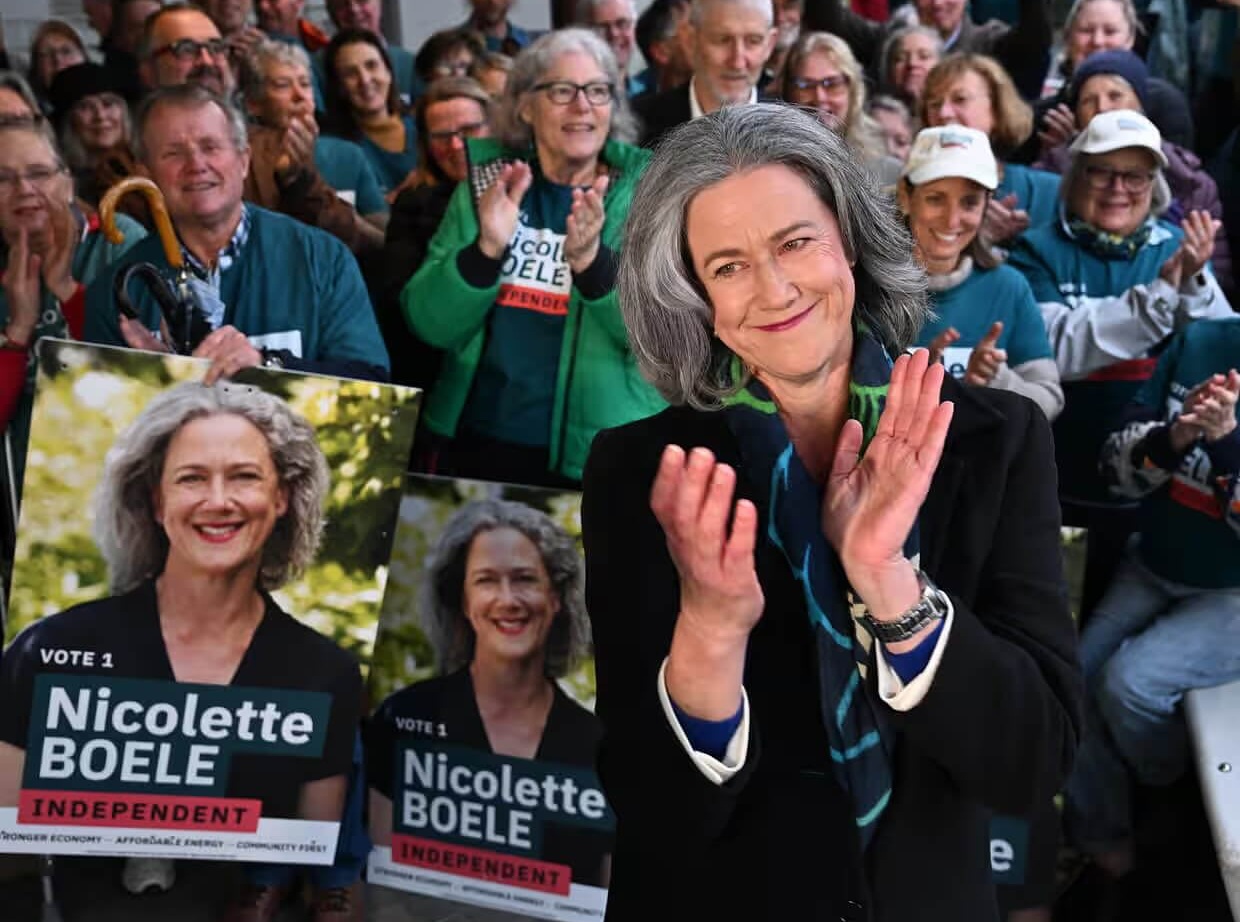
After a recount, independent Nicolette Boele was declared the winner in Bradfield on a two-party-preferred basis by just 26 votes. Photo: Nicolette Boele Facebook.
In a statement, Ms Kapterian said the party had decided to go to the umpire after careful consideration of the two different results of the counts in Bradfield.
“Over 118,000 ballots were cast by the people of Bradfield,” she said.
“The original count resulted in an eight-vote lead my way, while the second resulted in a 26-vote lead for Ms Boele. Today’s decision is taken to ensure the intentions of the voters of Bradfield are accurately reflected in the final count.
“The legislation anticipates the need to look again at the ballot papers, given the highly subjective nature of decisions relating to interpreting voter intentions.
“In this instance, a final arbiter does exactly what the AEC officials were doing throughout the count: they look at the ballot paper to determine matters like whether a number is legible, or whether a ‘5’ is an ‘8’, etc.
“We are requesting a final examination of a small number of ‘line-ball’ ballots that were reserved and considered by the AEC during the counts.”
Ms Kapterian stressed the decision in no way should be interpreted as her or the Liberal Party questioning the integrity of the electoral systems.
“In fact, this process has only served to reaffirm my faith in Australia’s democratic institutions,” she said.
“I am grateful for the AEC’s tireless work in delivering the two very close counts.”
The decision to appeal the result comes just days after the Electoral Integrity Assurance Taskforce (EIAT) concluded its assessment into the election and issued a statement to say its agencies had not found any sign of interference, foreign or otherwise, at the election.
“[The taskforce] did not identify any foreign interference, or any other interference, that compromised the delivery of the 2025 federal election or would undermine the confidence of the Australian people in the results of the election,” it said.


